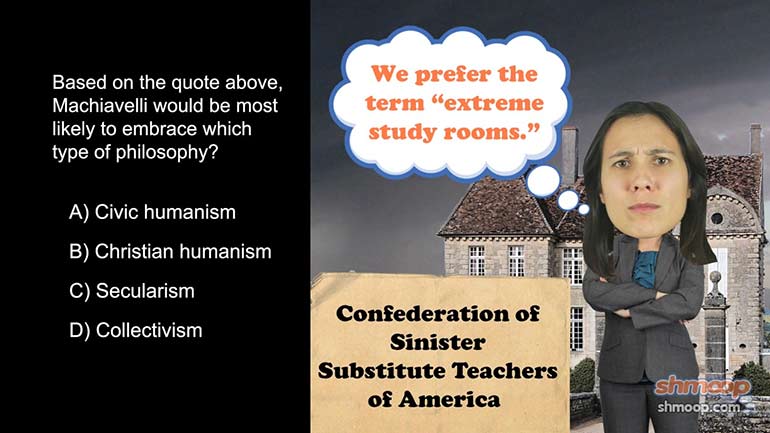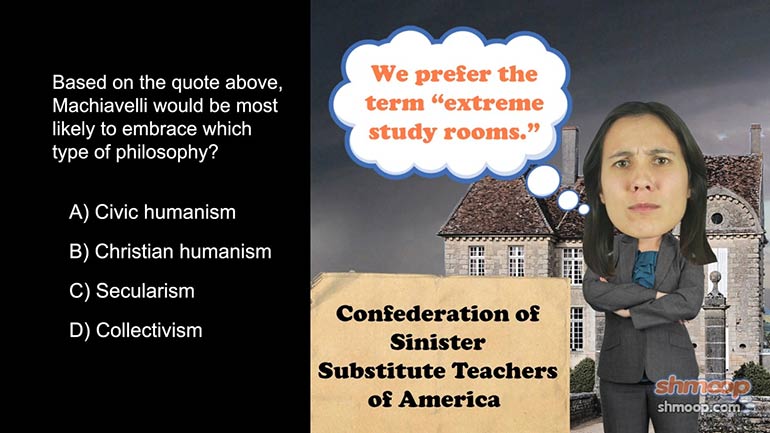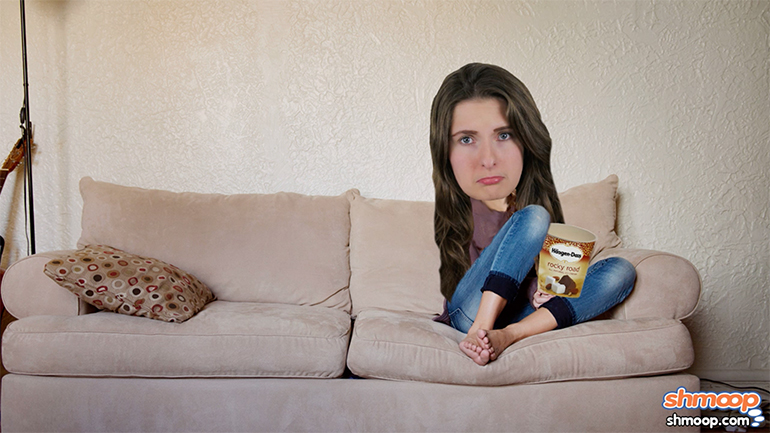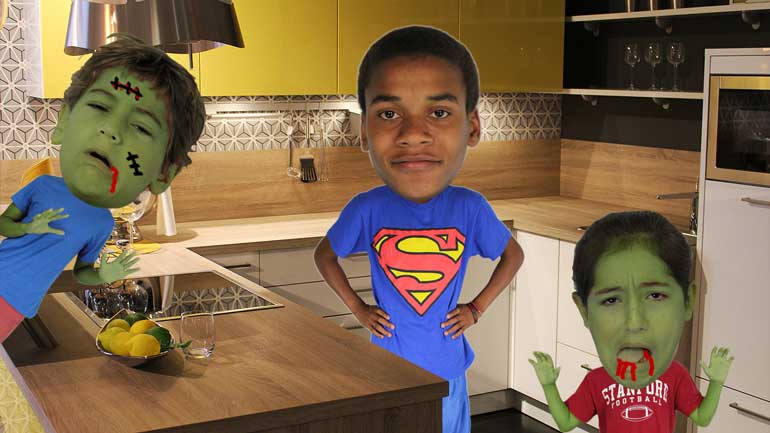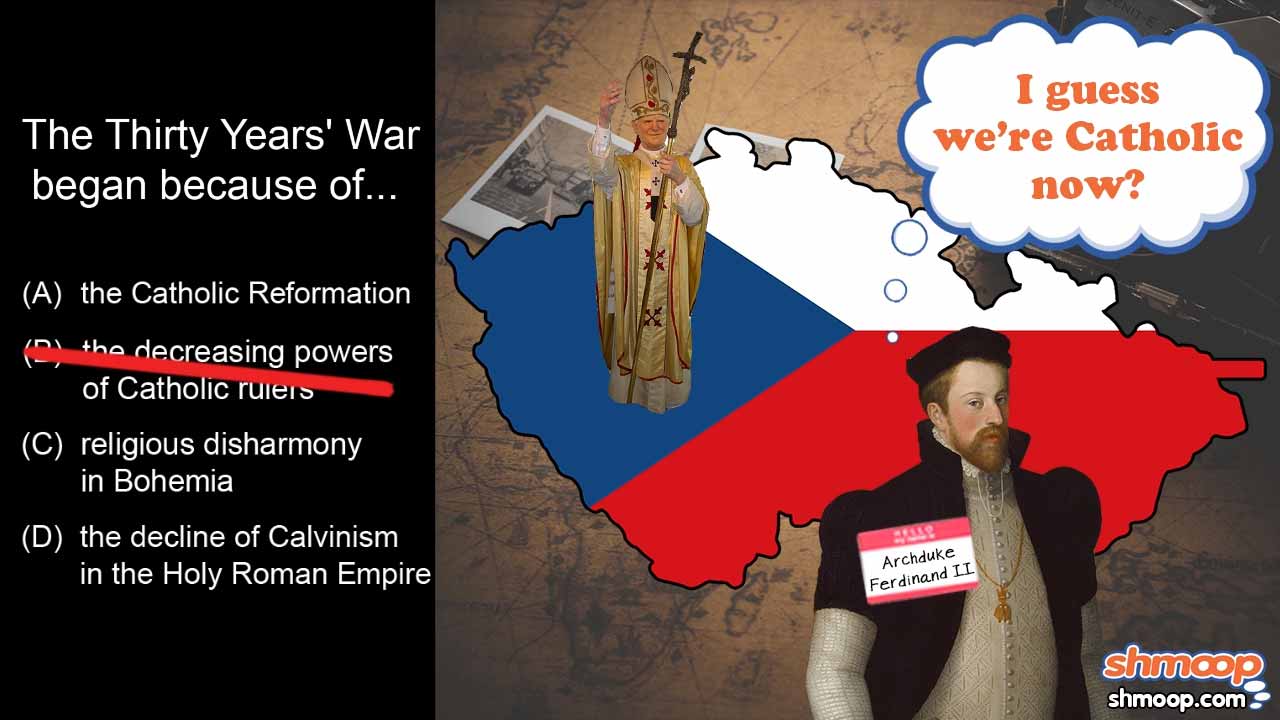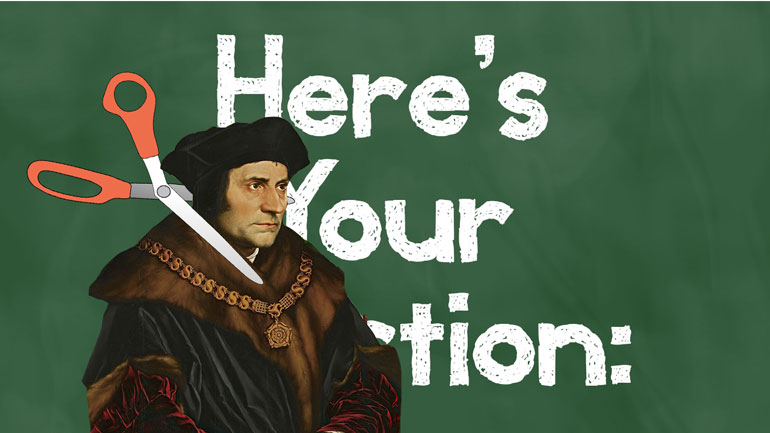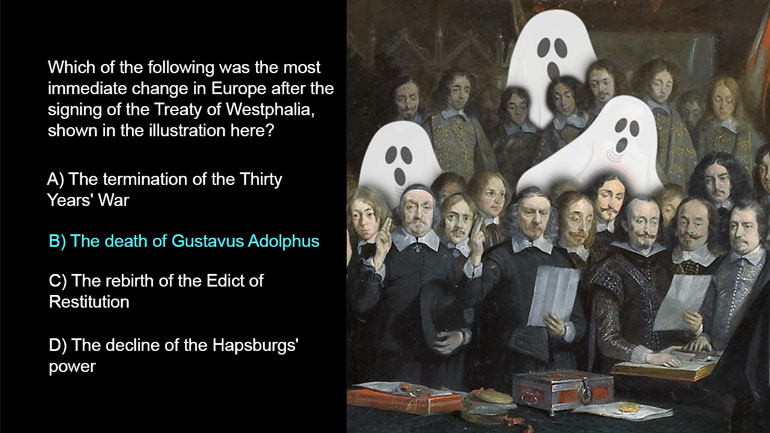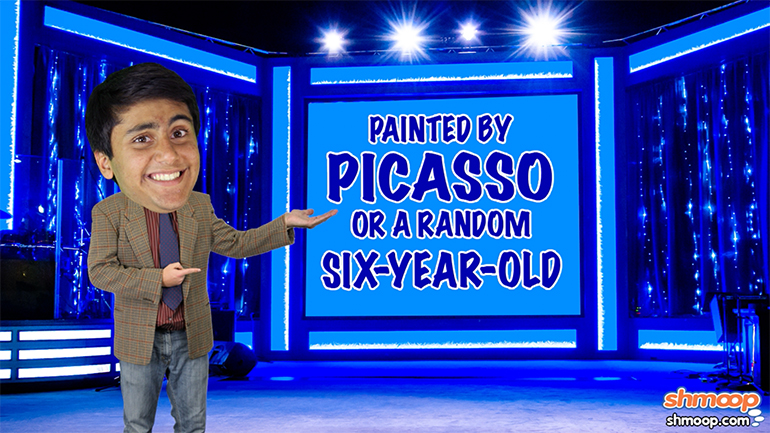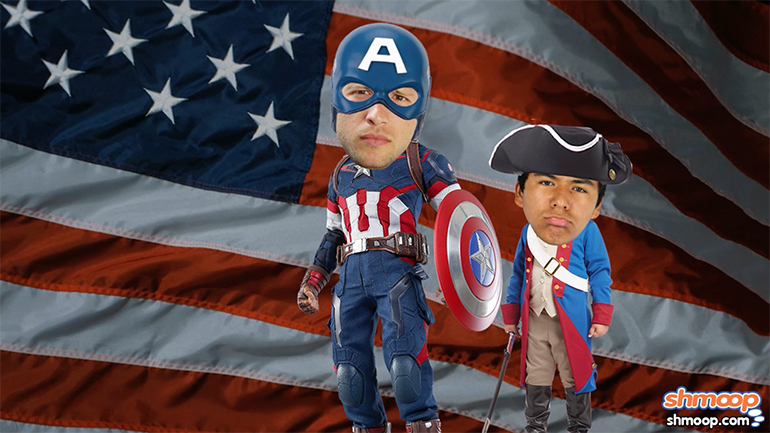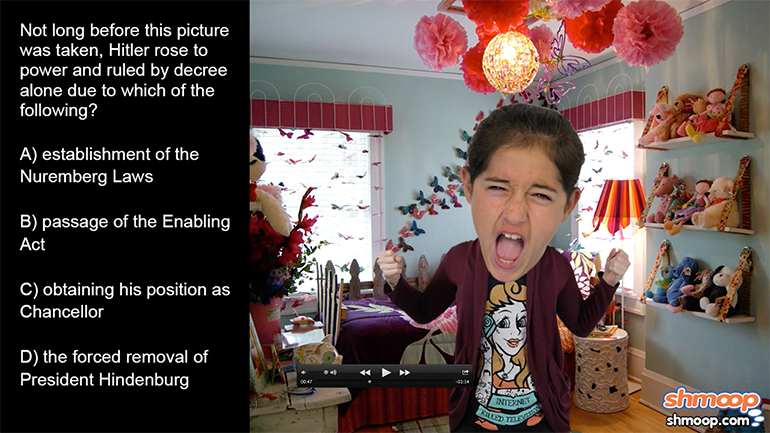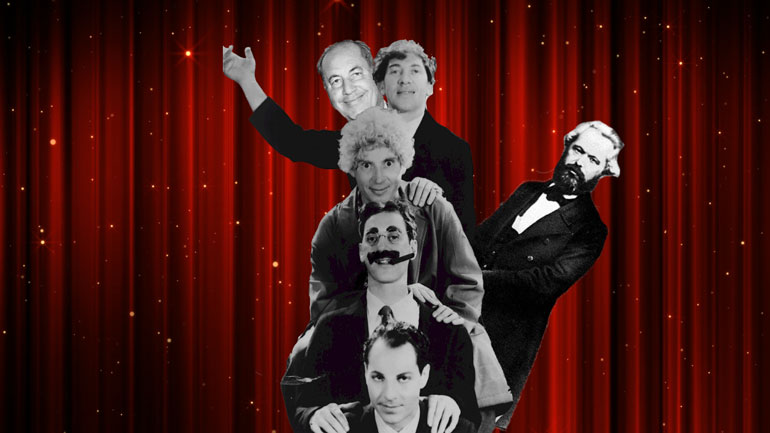ShmoopTube
Where Monty Python meets your 10th grade teacher.
Search Thousands of Shmoop Videos
Period 1: 1450-1648 Videos 10 videos
AP European History 1.1 Period 1: 1450-1648. Based on the quote, Machiavelli would be most likely to embrace which type of philosophy?
AP European History 1.2 Period 1: 1450-1648. Where would somebody who embraced this philosophy most likely have lived during the Renaissance?
AP European History 1.4 Period 1: 1450-1648. Erasmus would most likely agree with Machiavelli that what?
AP European History 2.4 Period 1: 1450-1648 11 Views
Share It!
Description:
AP European History 2.4 Period 1: 1450-1648. After the signing of the Treaty of Westphalia, the redrawing of the map of Europe ultimately what?
Transcript
- 00:03
And here's your shmoop du jour brought to you by instigating an
- 00:07
app for posting pictures of your doors alright BRB gotta instigate this awesome [Phone taking photo of a wooden gate]
- 00:13
door here there we go alright take a look at the image there right there
- 00:16
Treaty of Westphalia 1648 here's the question.. After the Treaty of Westphalia
- 00:22
is shown here the redrawing of the map of Europe ultimately what and here are your
Full Transcript
- 00:27
potential answers... All right well the Treaty of
- 00:33
Westphalia was signed in 1648 officially putting an end to the 30 Years War that [People signing the Treaty of Westphalia]
- 00:37
began in 1618 pretty convenient huh? otherwise the name of the war wouldn't
- 00:42
have made any sense at all so what did the redrawing of the map of Europe [Map of Europe]
- 00:45
ultimately accomplish? Did it C; instigate war between German States no
- 00:51
of course not we just said it ended the 30 Years War [Explosion and smoke appears]
- 00:54
including said German states, except well Spain and France weren't so lucky
- 00:58
they were at war for just a few more years until the peace of the Pyrenees
- 01:03
Treaty of 1659 put that little tiff to bed, yeah well listen nobody's perfect
- 01:08
not even the Treaty of Westphalia so that eliminates B and C and what about
- 01:12
the fate of the Dutch United Provinces and Switzerland well the treaty [Switzerland and Dutch United Provinces on a map of Europe]
- 01:16
recognized them and let them you know stick around too which is great because
- 01:20
now we get cheese with holes in it which now we think about it is kind of a [Cheese with holes]
- 01:24
rip off, you get less cheese.. well whatever maybe the treaty should have
- 01:27
denounced them after all but it didn't so that eliminates A - So that must mean
- 01:31
that the redrawing of the map of Europe ultimately D; granted religious [Person sitting a world globe]
- 01:36
tolerance where it had existed in 1624 the end of the war ended the idea of the
- 01:41
Roman Catholic conquest of Europe effectively forcing Europeans to realize
- 01:45
that Protestantism was here to stay as is cheese with holes in it [Protestant protester in a church]
- 01:50
seriously we lose like a solid 25 percent of the cheese that way whose
- 01:53
brilliant idea was that [A half-eaten wheel of cheese]
Related Videos
AP European History Period 1: 1450-1648 Drill 2, Problem 1. As a result of the meeting in the image, which of the following occurred?
AP European History Period 3: 1815-1914 Drill 2, Period 1, Les Demoiselles d'Avignon represented the beginning of which of the following art m...
AP European History Period 3: 1815-1914 Drill 2, Problem 4. Paintings like the one depicted above were a direct reflection of what?
AP European History 1.2 Period 4: 1914-Present Not long before this picture was taken, Hitler rose to power and ruled by decree alone due to which...
AP European History 1.4 Period 3: 1815-1914. As evidenced through the passage above, Karl Marx was a passionate leader and is considered the father...
